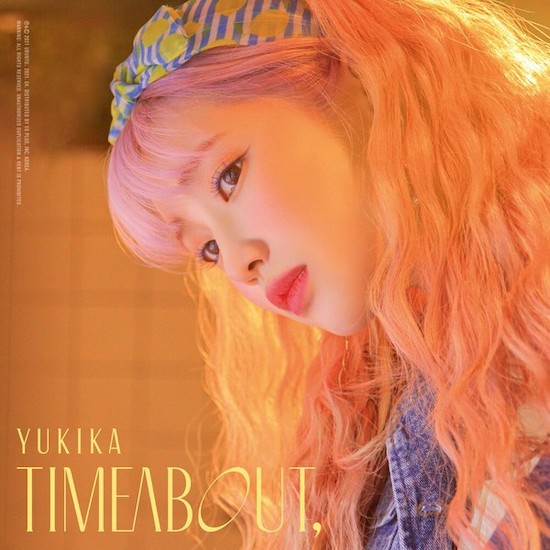It would be fair to say that we have been living in a late 70s and early 80s pop music space since, at least, 2019. Albums like Future Nostalgia and After Hours are obvious examples, and if you put your ear to 2020s k-pop you’ll find synthwave power trap song ‘La Di Da’ by Everglow, joyful sugary disco-pop track ‘Blue Hour’ by Tomorrow X Together and, going further back to 2019, the charming funk pop ‘Boy With Luv’ by BTS ft. Halsey and the solo debut of Japanese sweetheart Yukika with synth-nostalgia track ‘Neon’.
Developing her Asian 80s sound, 2020’s Soul Lady was a solid debut album sound-wise thanks to a combination of glittering synths evoking Japanese city pop with a touch of future house’s energy and the cheesiness of mellow ballads – a necessarily gentle corrective to the dance-focused k-pop scene of last year. However, it was a missed opportunity to tell a solid story since only about 3 songs follow the “young women in a new city” storyline. Timeabout fixes that.
Signalling a step further in Yukika’s brand as the contemporary city-pop princess, Timeabout is a clear example of a commitment to fulfil a convincing romantic music concept. In the intro, ‘Leap forward’, composer Memme takes off from the tiny bit of narrative Soul Lady had, recreating a car journey through the empty streets of a city by via pure instrumentals with a high-key note progression over a hushed sound that only increases its speed after some electro-drums. There’s a touch of glimmering old video game-like samples and a big band drop with trumpets and a funky bass (if you catch some of ‘Sparkles’ by Tatsuro Yamashita influence… I didn’t say anything). Suddenly, all the neon lights have powered up and the night has just begun.
This imagery all makes sense when you listen to the next track, ‘Insomnia’, where Yukika sings about an endless night. But the delightful part comes with its grooviness, surprisingly, from the hi-hat beats in combination with Yukika’s mellow lullaby-like voice. The work of the composers and producers, 임수호 (Im Sooho), 웅킴 (Woong Kim) & N!ko is remarkable when you take a look at the text-painting details – like the slightly wavy echoed filters the song has, giving it this sense of a never-ending dream state.
You’ll find more of this text-painting thing in ‘별방울 (PUNG!)’ (roughly translated to ‘drop of stars’). It lacks in development, since it’s rather a repetitive melody over and over again, but the compensation comes with little details like the pause just before the “poof!” (“펑” or “pung” in the lyrics), recreating that flicker of an explosion someone feels when meeting “the right one”, and – once again – those hush sample sounds are here during the whole song, only this time around they have the effect of inducting you into a floating space vibe.
So, following the retro 70s/80s pop trend, Timeabout tells a cheesy soulmate-like love story performed by Yukika’s honeyed voice, whose tenderness and shyness gives the narrative the right amount of innocence to achieve a perfect sweet-girl-next-door sound. It also makes the most of the nostalgic and intimate feeling from sparkly disco beats and soft-rock, with a touch of today’s intensity through faster tempos and intricate mixes. A great showcase for the dynamism of K-pop producers who aren’t afraid of blending many different genres to come up with power bop tracks full of musical details.



